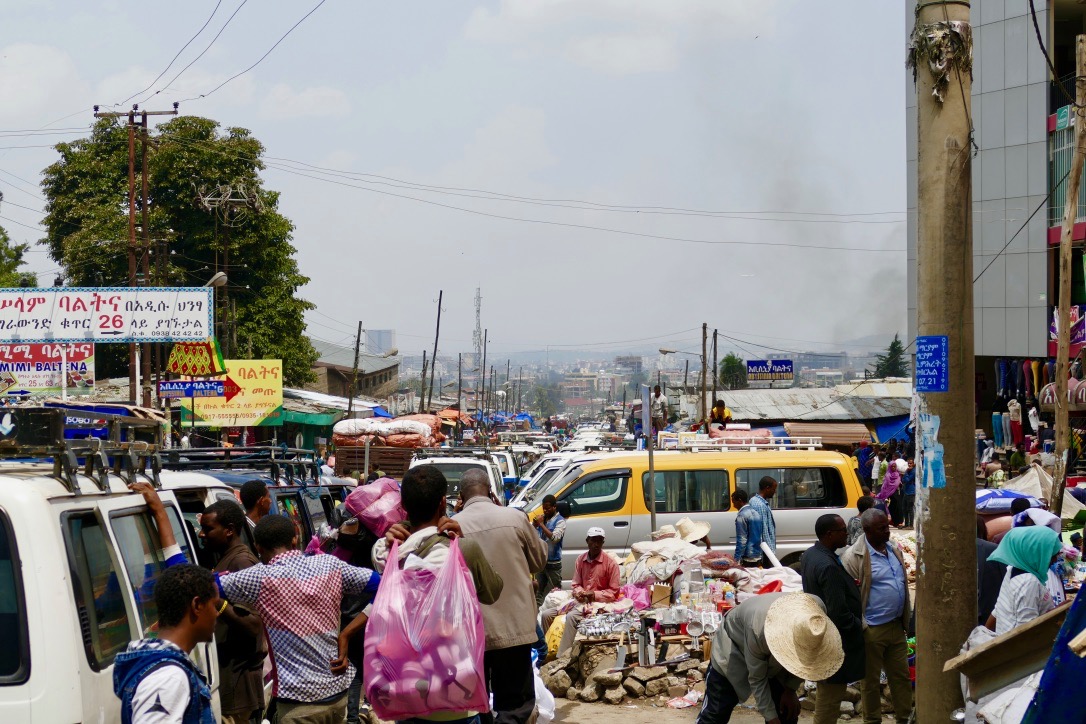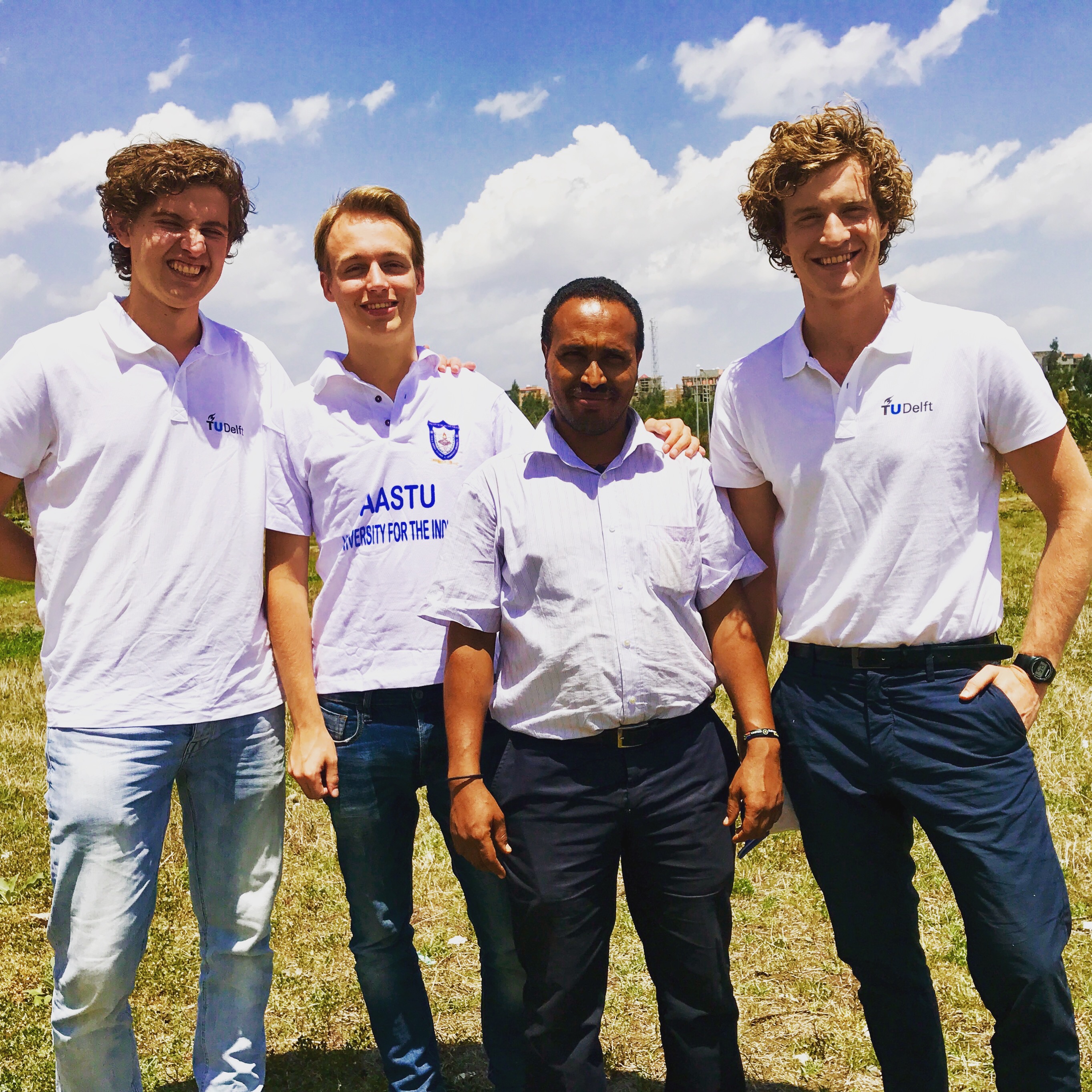Water distribution network in Addis Ababa
Andreas! Where are you?
Exploring the world, helping people with Dutch water knowledge, trying to have real impact on less developed parts of the world; all were reasons for a bachelor thesis in Addis Ababa, Ethiopia. There were a lot of interesting projects to choose from, but one was particularly exciting. Namely a project about the water distribution network in Addis Ababa, the capital of Ethiopia and sometimes dubbed the capital of Africa. Our project was the first of a larger program of the Delft University of Technology in collaboration with Addis Ababa. We would become pioneers in Ethiopia. We had to investigate the problems in Addis, building a foundation for further studies, but also come up with practical solutions ourselves. Ethiopia, located in the eastern part of Africa, has over 100 million inhabitants, making it the second most populous country of Africa.
Our first experiences in Addis were eye-opening. Everyone is so incredibly friendly and helpful. They are always offering to share their food and coffee, even to complete strangers. They are also very proud of their culture and history. The local pronunciation for Ethiopia sounds look Utopia, and the kindness of the people is absolutely utopian.
They say that in Amsterdam you are never more than a meter away from a rat; in Addis it feels like you are never more than 10 meters away from a minibus. Inexplicably they manage to cram 3 tall Ferenji (western people) and 19 Habesha (local people) in 1 Toyota minibus. After this they put a living goat and some furniture on the roof before driving away into traffic jams, honking at everything they are passing and then randomly just to see if the claxon is still working. The development of Ethiopia is however still slightly below utopian standards. It took us three days to find the right university, even Google was clueless. Addis Ababa Science and Technology University (AASTU) is only six years old. The students and staff were still building up their university and a lot of people asked us questions about how our university is doing and if we could help them with scholarships and that kind of things. We were in fact the first European students at this university.

The university laid contacts for us with the Addis Ababa Water and Sewerage Authorities (AAWSA). They manage the water distribution and sewage disposal system of Addis and are experiencing severe difficulties. Because of an increase in both per capita demand and the total amount of consumers, consumption is increasing rapidly. Were the system properly managed, enough water would be available to supply everyone. However currently non-revenue water (NRW) percentages are upwards of 50%. In other words, more than half of the water goes unbilled, mainly through leaks in the system or because of meter errors. This creates serious water shortages and health risks.
In time we discovered that the problem of NRW was not only a technical problem but more a management problem. The head office and branch offices had poor communication. It was hard obtaining unreliable data, and reliable data even harder, because few people could help us. We were sent back and forth between different departments, and at the end of the day it frequently occurred that the data we requested either didn’t exist or was unavailable. We wrote a guideline for AAWSA on how to design district metered areas (DMAs), which will create a lot more insight in the water distribution system. The DMAs would help in locating the losses and reduce NRW in Addis Ababa. Furthermore we evaluated the financial consequences for this reduction. The next step is for AAWSA to implement the guideline into their NRW reduction plans.
All in all living and working in Addis for two months has been an amazing and very rewarding time. The kind people, incredible stories and daily amazement have made this experience truly unforgettable.
Andreas den Dekker, Bas Tijhof & Rogier Buck
P.S.: Feel free to contact any of us at any time through Facebook if you would like to know more!
